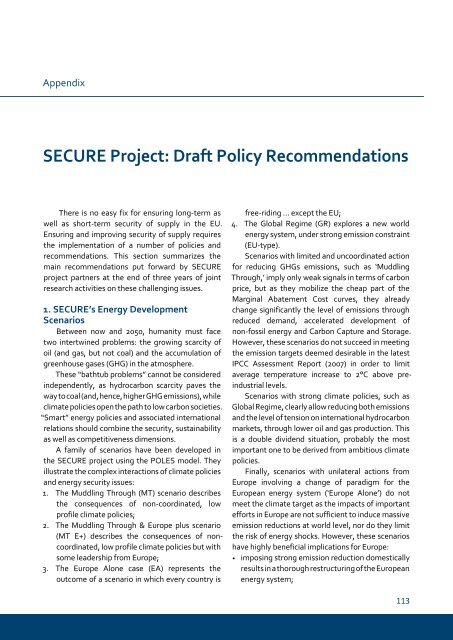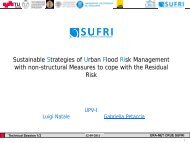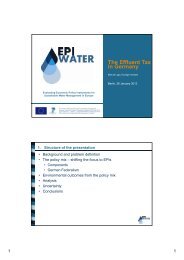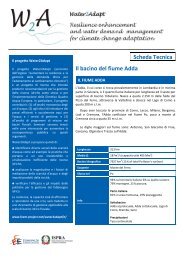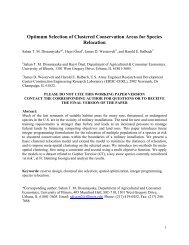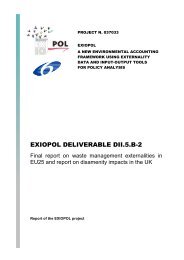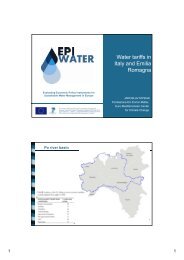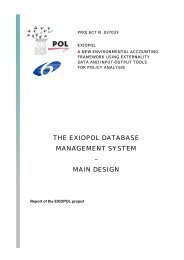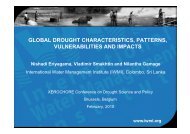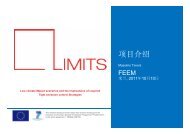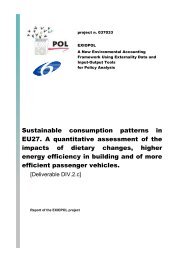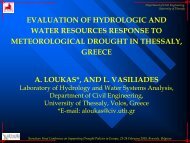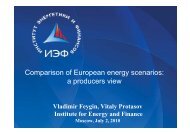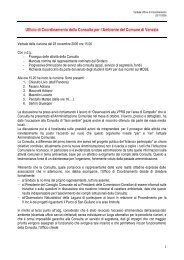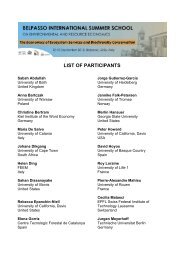Gulf and European Energy Supply Security - Feem-project.net
Gulf and European Energy Supply Security - Feem-project.net
Gulf and European Energy Supply Security - Feem-project.net
You also want an ePaper? Increase the reach of your titles
YUMPU automatically turns print PDFs into web optimized ePapers that Google loves.
Appendix<br />
seCURe Project: Draft Policy Recommendations<br />
There is no easy fix for ensuring long-term as<br />
well as short-term security of supply in the EU.<br />
Ensuring <strong>and</strong> improving security of supply requires<br />
the implementation of a number of policies <strong>and</strong><br />
recommendations. This section summarizes the<br />
main recommendations put forward by SECURE<br />
<strong>project</strong> partners at the end of three years of joint<br />
research activities on these challenging issues.<br />
1. seCURe’s energy Development<br />
scenarios<br />
Between now <strong>and</strong> 2050, humanity must face<br />
two intertwined problems: the growing scarcity of<br />
oil (<strong>and</strong> gas, but not coal) <strong>and</strong> the accumulation of<br />
greenhouse gases (GHG) in the atmosphere.<br />
These “bathtub problems” cannot be considered<br />
independently, as hydrocarbon scarcity paves the<br />
way to coal (<strong>and</strong>, hence, higher GHG emissions), while<br />
climate policies open the path to low carbon societies.<br />
“Smart” energy policies <strong>and</strong> associated international<br />
relations should combine the security, sustainability<br />
as well as competitiveness dimensions.<br />
A family of scenarios have been developed in<br />
the SECURE <strong>project</strong> using the POLES model. They<br />
illustrate the complex interactions of climate policies<br />
<strong>and</strong> energy security issues:<br />
1. The Muddling Through (MT) scenario describes<br />
the consequences of non-coordinated, low<br />
profile climate policies;<br />
2. The Muddling Through & Europe plus scenario<br />
(MT E+) describes the consequences of noncoordinated,<br />
low profile climate policies but with<br />
some leadership from Europe;<br />
3. The Europe Alone case (EA) represents the<br />
outcome of a scenario in which every country is<br />
free-riding … except the EU;<br />
4. The Global Regime (GR) explores a new world<br />
energy system, under strong emission constraint<br />
(EU-type).<br />
Scenarios with limited <strong>and</strong> uncoordinated action<br />
for reducing GHGs emissions, such as ‘Muddling<br />
Through,’ imply only weak signals in terms of carbon<br />
price, but as they mobilize the cheap part of the<br />
Marginal Abatement Cost curves, they already<br />
change significantly the level of emissions through<br />
reduced dem<strong>and</strong>, accelerated development of<br />
non-fossil energy <strong>and</strong> Carbon Capture <strong>and</strong> Storage.<br />
However, these scenarios do not succeed in meeting<br />
the emission targets deemed desirable in the latest<br />
IPCC Assessment Report (2007) in order to limit<br />
average temperature increase to 2°C above preindustrial<br />
levels.<br />
Scenarios with strong climate policies, such as<br />
Global Regime, clearly allow reducing both emissions<br />
<strong>and</strong> the level of tension on international hydrocarbon<br />
markets, through lower oil <strong>and</strong> gas production. This<br />
is a double dividend situation, probably the most<br />
important one to be derived from ambitious climate<br />
policies.<br />
Finally, scenarios with unilateral actions from<br />
Europe involving a change of paradigm for the<br />
<strong>European</strong> energy system (‘Europe Alone’) do not<br />
meet the climate target as the impacts of important<br />
efforts in Europe are not sufficient to induce massive<br />
emission reductions at world level, nor do they limit<br />
the risk of energy shocks. However, these scenarios<br />
have highly beneficial implications for Europe:<br />
• imposing strong emission reduction domestically<br />
results in a thorough restructuring of the <strong>European</strong><br />
energy system;<br />
11


